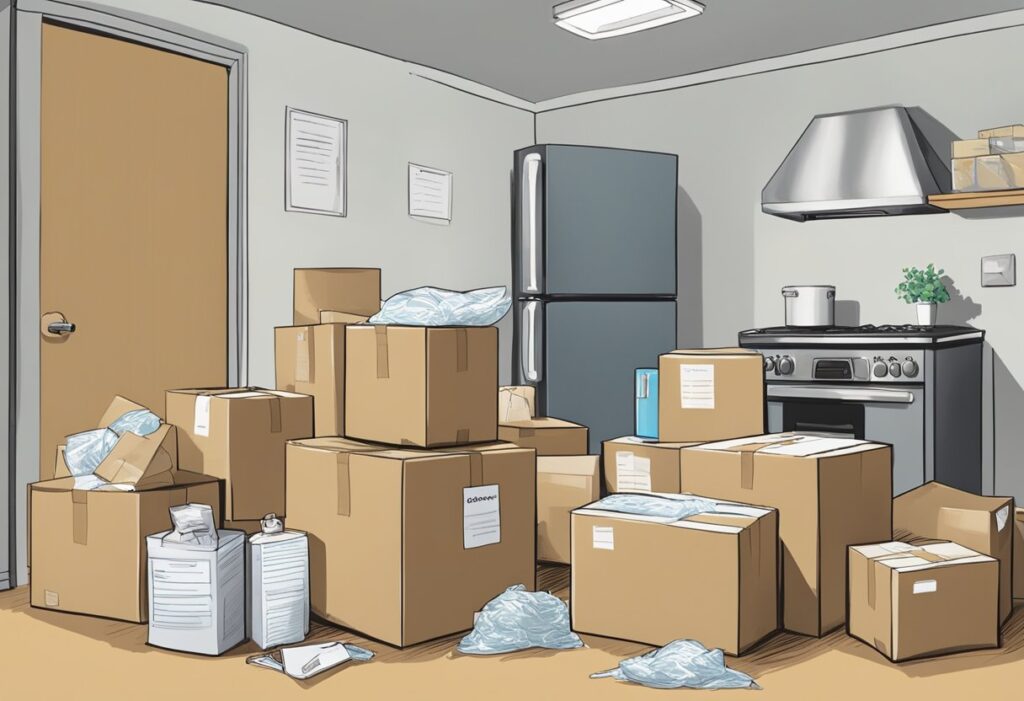Moving house can be one of life’s most stressful events, but with a proper plan, it doesn’t have to be overwhelming. A detailed checklist ensures you don’t miss any critical steps, making your move smoother and more organised. Whether you’re moving for the first time or you’re a seasoned pro, having a checklist can make all the difference.
From confirming your moving date to organising van hire, every task needs careful attention. This blog post will guide you through each stage, giving you confidence that nothing gets overlooked. Knowing what to expect and preparing in advance can turn a daunting task into a manageable one.
You’ll also find advice on transferring utilities, notifying important contacts of your new address, and ensuring everything is packed safely. Moving house means juggling a lot of responsibilities, but with our comprehensive checklist, you’ll be ready for a seamless transition into your new home.
Initial Preparations
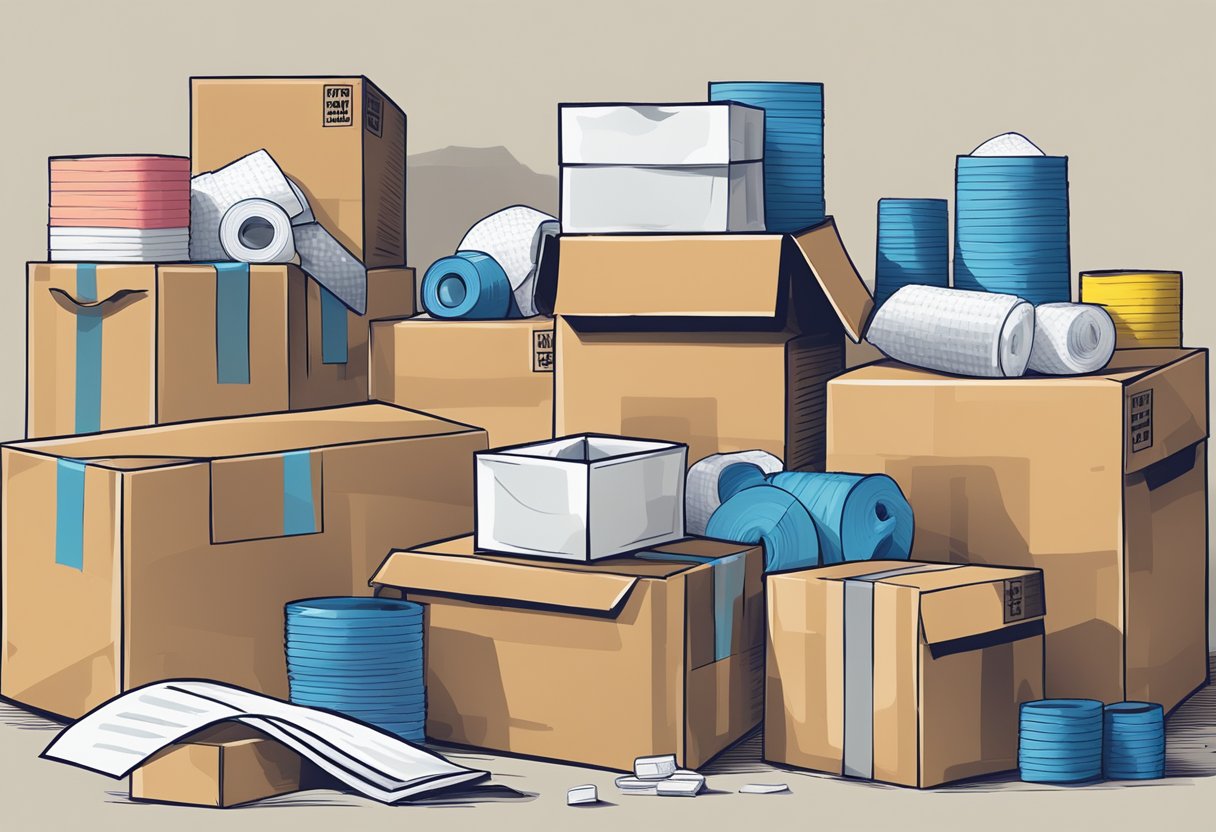
Getting ready for a house move involves several key steps that help ensure a smooth transition. By paying attention to important details, you can make the process less stressful and more organised.
Selecting a Reliable Moving Company
Choosing the right moving company in Ireland is crucial. Start by asking friends and family for recommendations. Look for companies with good reviews online. Contact at least three companies to get quotes and compare their services.
Ensure the company is licensed and insured. Check if they provide packing materials like boxes and bubble wrap. Go over the fine print to understand their policies on handling fragile or or expensive items, such as piano moving. Having a trustworthy mover makes a big difference.
Setting Your Moving Budget
Creating a budget helps keep your moving costs under control. Start by listing all possible expenses, such as hiring movers, packing supplies, and any cleaning services. Include smaller costs like fuel and meals on moving day.
Look for ways to save money. For instance, some companies offer discounts if you book early. Second-hand packing boxes can also help cut costs. Budgeting helps you avoid surprises and ensures you have enough funds for the entire process.
Sorting Belongings and Decluttering
Before you start packing, go through your belongings and decide what to keep, donate, or throw away. Sorting through your items helps declutter your new home before you even move in.
Create three piles: keep, donate, and discard. Be honest with yourself — if you haven’t used something in a year, consider if you really need it. Donate items in good condition to local charities, and recycle or dispose of the rest responsibly. Decluttering simplifies packing and reduces the number of items you need to move. You may consider hiring a house clearance company in Dublin to help you with this. Additionally, understanding the cost of self storage can be beneficial if you need a temporary place to store your belongings during the transition.
Getting Organised

Being organised is vital for a smooth move. This involves making an inventory, managing crucial documents, and updating various parties about your change of address. Below are the essential steps to help you stay on track.
Creating an Inventory List
An inventory list helps you keep track of your belongings and ensures that nothing gets lost or forgotten. Start by listing all items in each room. This includes furniture, electronics, and smaller items like kitchenware. Use a spreadsheet or a notebook to categorise and check off items as you pack.
You can also take photos of valuable items for extra documentation. This is useful if anything gets damaged during the move. Don’t forget to label each box with its contents and the room it belongs to. This will make unpacking much easier.
Important Documents and Records Management
Managing important documents is crucial. Gather all vital records like passports, birth certificates, and insurance papers. Keep these in a labelled, secure folder. This folder should stay with you during the move to prevent any loss.
Additionally, you’ll need to obtain and organise school records if you have children, and medical records for all family members. Inform your employer and gather any necessary work-related documents. Keeping these papers in a safe and accessible place ensures they remain safe and you can easily find them when needed.
Notifying Essential Parties
As you prepare to move, it’s important to inform necessary parties of your new address. Notify your bank, utilities, and broadband providers. This helps ensure you don’t miss any bills or important communications.
Update your doctor and dentist with your new address to avoid missing medical appointments. Don’t forget to inform the local council for tax purposes. Additionally, tell your previous and new employers, as well as your kids’ schools, about your change of address. This helps maintain communication and ensures no disruption in important services.
Packing and Protection
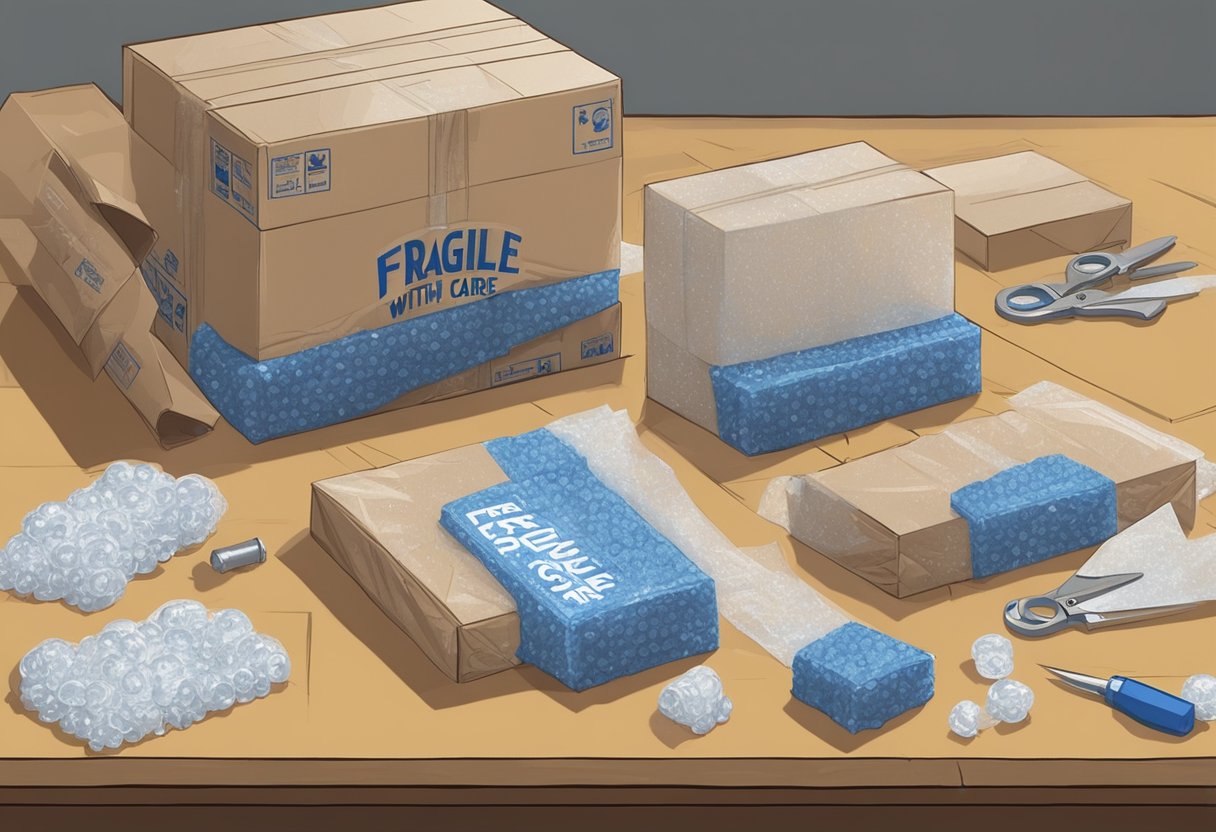
Proper packing and ensuring the protection of belongings during a move involves gathering the right materials, labelling boxes correctly, and taking special care with fragile and valuable items. Here are some specific strategies to help make this process easier.
Gathering Packing Supplies and Materials
Ensure you have all the necessary packing supplies before you begin. Essentials include:
- Sturdy boxes in various sizes
- Bubble wrap and packing paper for cushioning
- Tape for sealing boxes
- Markers for labelling
Seek out specialty services for items like large pieces of furniture or particularly fragile items. Reusable containers can be an eco-friendly alternative to traditional cardboard boxes. Also, consider getting insurance for accidental damage during the move.
Effective Labeling Strategies
Effective labelling is crucial for a smooth moving process. Clearly label each box with its contents and the room it belongs to. Write “Fragile” on boxes with breakable items.
Consider using colour-coded labels to quickly identify boxes by room. For instance, use green for the kitchen and blue for the bedroom. Create an inventory list detailing the contents and note any warranties or special handling instructions for valuable items and non-essentials.
Alternatively, use numbered labelling paired with a master list to account for every box, which helps with tracking during the move.
Special Considerations for Fragile and Valuable Items
Handling fragile and valuable items requires extra care. Wrap breakable items like glassware, ceramics, and electronics in bubble wrap or pack them with specialised packing services.
Place softer items like towels or blankets around fragile items for added protection. Labelling these boxes as fragile aids movers in handling them with care. For high-value items such as jewellery, artwork, or important documents, consider carrying them separately to ensure their safety. Also, check that insurance policies cover these valuables during transit.
For particularly valuable items, use additional protective materials such as hard-shell cases and corner protectors to prevent damage.
Finalising the Move
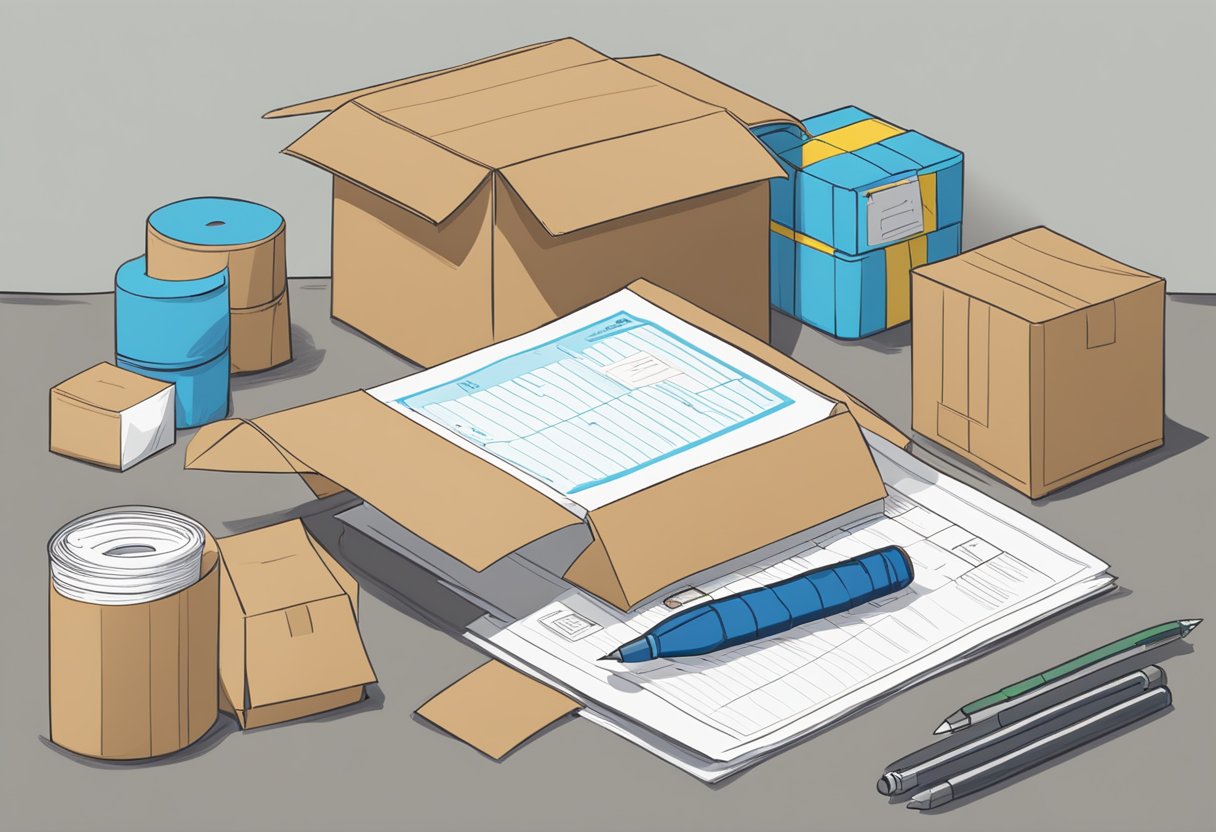
Finalising a house move involves checking all last-minute details, being prepared for the day itself, and ensuring your new home is secure. These steps help ensure a smooth transition and prevent issues moving forward.
Last-Minute Checks and Final Walkthrough
Before leaving the old house, it’s crucial to go through it one last time. Check all rooms, including cupboards, lofts, and garages, to make sure nothing is left behind.
Take final utility meter readings and note them down to avoid disputes later.
Ensure all appliances are turned off and windows and doors are locked.
Doing a final sweep ensures that everything is accounted for and that the property is left in good condition.
Essentials for Moving Day
Packing a “survival kit” for moving day can make all the difference. This kit should include essentials like snacks, water, important documents, and basic toiletries.
Keep the moving checklist handy to tick off tasks as you go.
Plan your travel arrangements carefully, considering traffic and possible delays. Having a set schedule for arrivals and departures will help the day go smoothly.
Make sure you have a clear plan for unloading at your new home.
Securing Your New Home
Once everything is unloaded at the new home, focus on securing it. Change the locks as soon as possible to ensure no one else has access. This step is vital for your peace of mind.
Check that all windows and doors lock correctly. Install any necessary alarm systems or security cameras.
Double-check that you’ve received all keys, including those for sheds or garages.
Settling into Your New Place

Moving into a new home can be exciting, though there are many tasks to manage. Ensuring your home is set up, updating necessary information, and establishing a connection with your new community are crucial steps to take.
Unpacking and Home Set-Up
Begin by focusing on essential areas such as the kitchen, bedrooms, and bathrooms. Unpack items that you’ll need immediately, like bedding, toiletries, and utensils. As you settle, arrange furniture and set up decor to make the space feel comfortable.
Make sure all utilities (electricity, gas, water, internet, and cable) are functioning correctly. Setting up a home office space is also valuable, especially if you work remotely. Don’t forget to change the locks on all exterior doors for security.
If you want to be extra careful, consider hiring a professional packing & unpacking service.
Updating Personal Information
Once you’re settled, update your address with various services. Start with the post office to ensure your mail is redirected correctly. Then, notify banks, insurance companies, and any other subscriptions about your new address.
Check if you need to transfer or sign up for new home insurance specific to your new location. Also, make sure to inform your doctor, dentist, and any other essential health services. Updating your telephone and other key utilities should also be done promptly.
Building a New Community Network
Introducing yourself to neighbors can be a great way to start. You can also join local community groups or social media platforms specific to your new area. Finding nearby amenities like the gym, local schools, and pet care providers will help you feel more settled.
Consider registering with new schools if you have children and look into extracurricular activities for them. Exploring local shops, parks, and community centers will also help you get a sense of your new surroundings. Engaging actively in these efforts will help you build a robust network in your new community. One of the best tips on moving house is to take your time in familiarising yourself with the new neighborhood.
Frequently Asked Questions
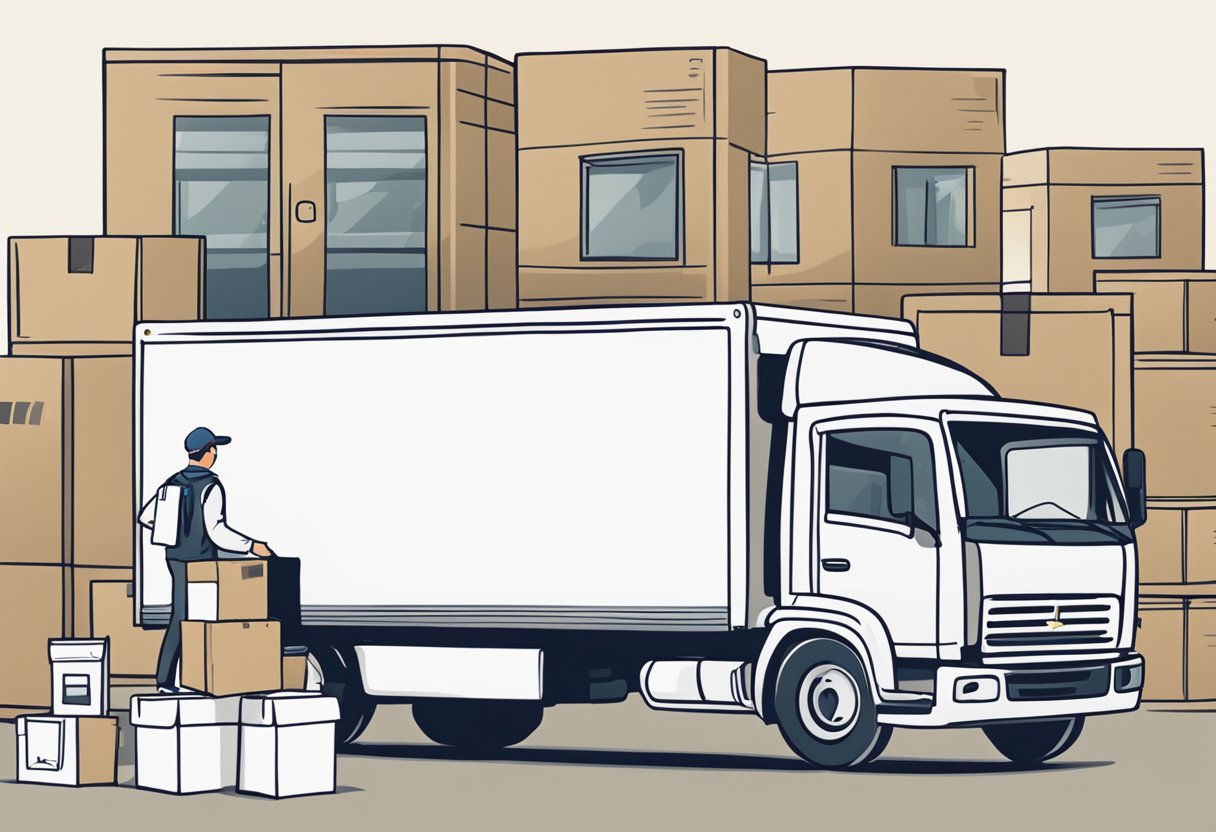
Moving house can be stressful, but planning ahead helps a lot. Here are answers to some common questions people have about moving.
What items should be on my packing checklist when I’m preparing to move?
Start with essentials like identification, clothing, medications, and toiletries. Then, focus on kitchen items, furniture, and electronics. Don’t forget important documents. Label each box clearly to know what’s inside and where it should go in the new home.
How far in advance should I start preparing for my house move?
It’s best to start planning at least eight weeks before moving day. Begin with decluttering and packing non-essential items. Then, book a moving service and gather packing supplies. Lastly, notify authorities and service providers about your change of address well in advance.
What are the essential steps to take when relocating to a new home?
First, set a moving date and organize your packing. Then, arrange for a moving company or hire a van. Pack belongings securely and label boxes. On moving day, do a final walkthrough to ensure nothing is left behind. Upon arrival, unpack essentials first and check if utilities are set up.
Could you list the administrative tasks to address immediately after moving house?
Inform your bank, doctor, and dentist of your new address. Then, update your address for insurance, subscriptions, and at your workplace. Lastly, register to vote at your new location and ensure your council tax information is current.
What are the cost considerations to keep in mind when planning a house move in Ireland?
Budget for hiring movers, renting a van, and purchasing packing supplies. Also, consider any cleaning fees for your old home and setup costs for utilities at the new place. Additional costs might include storage units, travel expenses, and unexpected repairs.
What are some practical tips for ensuring a smooth house moving experience?
Create a moving plan and stick to it. Start packing early to avoid last-minute stress. Use quality packing materials to protect your belongings. On moving day, keep important documents handy. Communicate clearly with your moving company and ensure everyone involved knows the plan.
